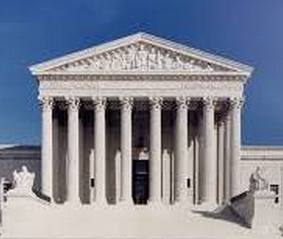![]()

The U-S Supreme Court on Thursday rejected a challenge to the 1978 Indian Child Welfare Act, a federal law aimed at keeping Native American children who are in the foster care system in Native American homes.
The law sets minimum standards for removing those children from their homes and prioritizes placing them into the homes of extended family or tribal members – places that reflect the values of Native American culture.
The Supreme Court vote was 7-2, with only Justices Clarence Thomas and Sam Alito dissenting. Justice Amy Coney Barrett wrote the majority opinion
The case centered around a white Texas couple who adopted a Navajo boy and wanted to also adopt his half-sister, who’d lived with them as a foster child since she was an infant.
They fought a long court battle with the Navajo Nation, then took the fight to federal court – joined by other families and the states of Texas, Indiana, and Louisiana.
They argued the ICWA discriminates against non-Native families because of their race and that the family custody disputes should be handled by states.
Justice Barrett wrote that “the issues are complicated” but that the high court rejects all the challenges – “some on the merits and other for a lack of standing.”
Justice Neil Gorsuch, in a concurring opinion with Sonia Sotomayor and Ketanji Brown Jackson, said he wanted to put the the Indian Child Welfare Act into historical perspective.
He described it “as a direct response to the mass removal of Indian children from their families during the 1950s, 1960s, and 1970s by state officials and private parties.”
Gorsuch wrote.”the dissolution of the Indian family has had devastating effects on children and parents alike” and also presents “an existential threat to the continued vitality of Tribes” – the latter seen as a plus for years by many federal and state officials.
Native rights proponents have argued the case was an attack on tribal sovereignty, so the Supreme Court ruling drew praise from virtually all tribal leaders around the country.
